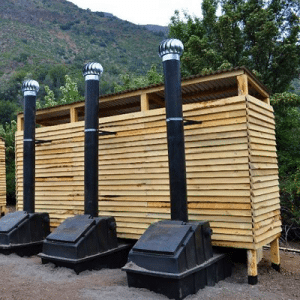
Agriculture
December 20, 2023
Enviro Loo Domestic D2010
Read SolutionImplemented by
Enviro Loo
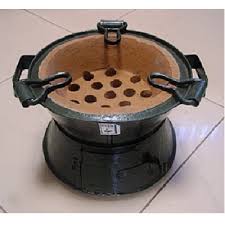
Updated on February 1, 2024
·Created on August 27, 2015
Kenya Ceramic Jiko (also named Kimathi Jiko) is a portable, lightweight and charcoal-burning cookstove.
Kenyan Domestic Ceramic Jiko Stove, also known as Kimathi Jiko, is a lightweight, portable, charcoal-burning stove with a ceramic inner lining and metal cladding catered to standard cooking methods in Kenya.
Construction manual can be purchased on Amazon for 15 USD for self-construction of the stove.
Target SDGs
SDG 7: Affordable and Clean Energy
Market Suggested Retail Price
$10.00
Target Users (Target Impact Group)
Household
Distributors / Implementing Organizations
Organizations such as CARE, UNICEF, The Bellerive Foundation, as well as the United States and German aid agencies all played a role in the development and promotion of the KCJ. The Kenya Energy and Environment Organization (KENGO) has played an active role in increasing awareness and promoting the use of the Kenya Ceramic Jiko since 1982.
Competitive Landscape
Direct competitors include eCookstove, Solar PV Cook-stove, Eco Rocket Stove, IES 60 L Cookstove, and JikoJoy Charcoal Stove.
Countries
Kenya
Manufacturing/Building Method
Large-scale promotion, production, sales, and repair network. Jiko stoves can be built following the instructions in the construction manual and a video on the production of the stoves is also available.
Intellectural Property Type
Trade Secret
User Provision Model
Through Kenya Energy and Environment Organisations in Nairobi, Kenya, or various local distributors.
Distributions to Date Status
In 1995, tere were over 700,000 KCJ's in use in Kenya; the stoves were found in over 50% of all urban homes, and roughly 16% of rural homes. The current distribution to date is unknown, however the production volume is 20,000/month.
Fuel type
Charcoal
Chimney (yes/no)
No
Forced or passive
Passive
Pot type
Round bottom
Pot capacity (L)
Unknown
Thermal efficiency (%)
33.9 – 41.4 %
PM emissions (g/MJ delivered to pot)
298 – 647.5 mg/MJ-del
CO emissions (g/MJ delivered to pot)
30 – 41.35 g/MJ-del
Time to boil (min/L)
27 – 39.7 min/5 L
Design Specifications
Design specifications on the Kenya Ceramic Jiko (KCJ) include the hour-glass shaped metal cladding with an interior ceramic liner that is perforated to permit the ash to fall to the collection box at the base, a thin layer of vermiculite or cement placed between the cladding and the liner and the top of the stove to place the single pot.
This stove weighs from 3 to 6 Kg and its diameter varies from 30 to 50 cm.
Further details here.
Technical Support
Training courses are available for stove manufacturers, vendors, and end-users through various NGOs (not specified).
Replacement Components
Unknown
Lifecycle
Lifecycle is unknown in the Clean Cookstove Catalog.
Manufacturer Specified Performance Parameters
The manufacturer (KENGO) has not listed any specific targets of the product.
Vetted Performance Status
Testing results for the stove are summarized and can be downloaded from the Clean Cooking Catalog.
Safety
Unknown
Complementary Technical Systems
None
Academic Research and References
Kammen, D.M., 2011, Research, Development and Commercialization of the Kenya Ceramic Jiko and Other Improved Biomass Stoves in Africa, Berkeley (CA): University of California
Hyman, E. L., 1985, The Experience with Improved Charcoal and Wood Stoves for Households and Institutions in Kenya, USAID
About 1,000 additional articles on cookstoves in Kenya
Compliance with regulations
Unknown
Evaluation methods
Extensive evaluation methods of U.S. EPA, University of California, Irvine, Aprovecho Research Center, and University of Nairobi are available on the Clean Cooking Catalog.
Other Information
Research, Development and Commercialization of the Kenya Ceramic Jiko and other Improved Biomass Stoves in Africa, Daniel M. Kammen, Ph.D.
The institutional ceramic Jiko can be used in hospitals, schools, prisons, and any institutions that use fuelwood or charcoal for cooking.
Furthere information available on the Wikipedia and this article
Product's construction manual can be purchased for DIY on Amazon
Video on How to make a Kenya Ceramic Jiko

Agriculture
December 20, 2023
Implemented by
Enviro Loo
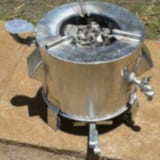
Agriculture
November 19, 2024
Implemented by
STAMP Investments
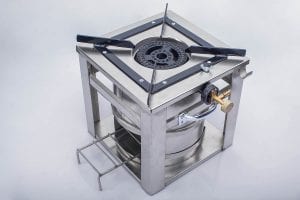
Agriculture
December 27, 2023
Implemented by
F & M Industries Ltd.

Agriculture
January 11, 2024
Implemented by
Caminos de Agua
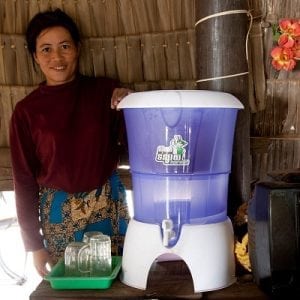
Agriculture
January 4, 2024
Implemented by
iDE
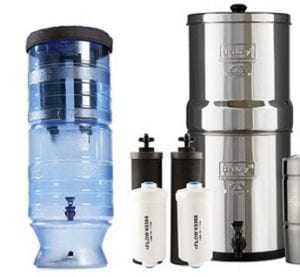
Agriculture
January 11, 2024
Implemented by
New Millennium Concepts, Ltd
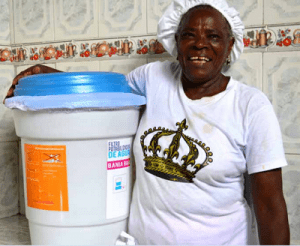
Agriculture
January 5, 2024
Implemented by
Universidad Tecnológica de Pereira (UTP)
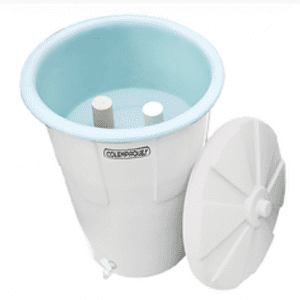
Agriculture
December 6, 2023
Implemented by
colempaques
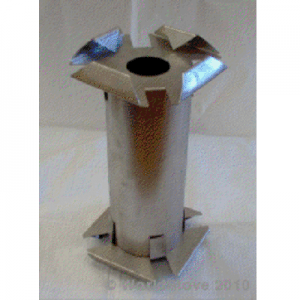
Agriculture
November 30, 2024
Implemented by
WorldStove
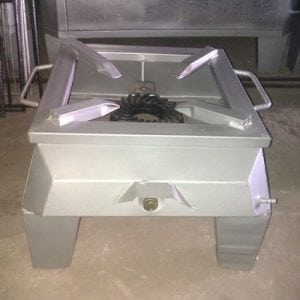
Agriculture
May 27, 2024
Implemented by
Montals Engineering
Have thoughts on how we can improve?
Give Us Feedback